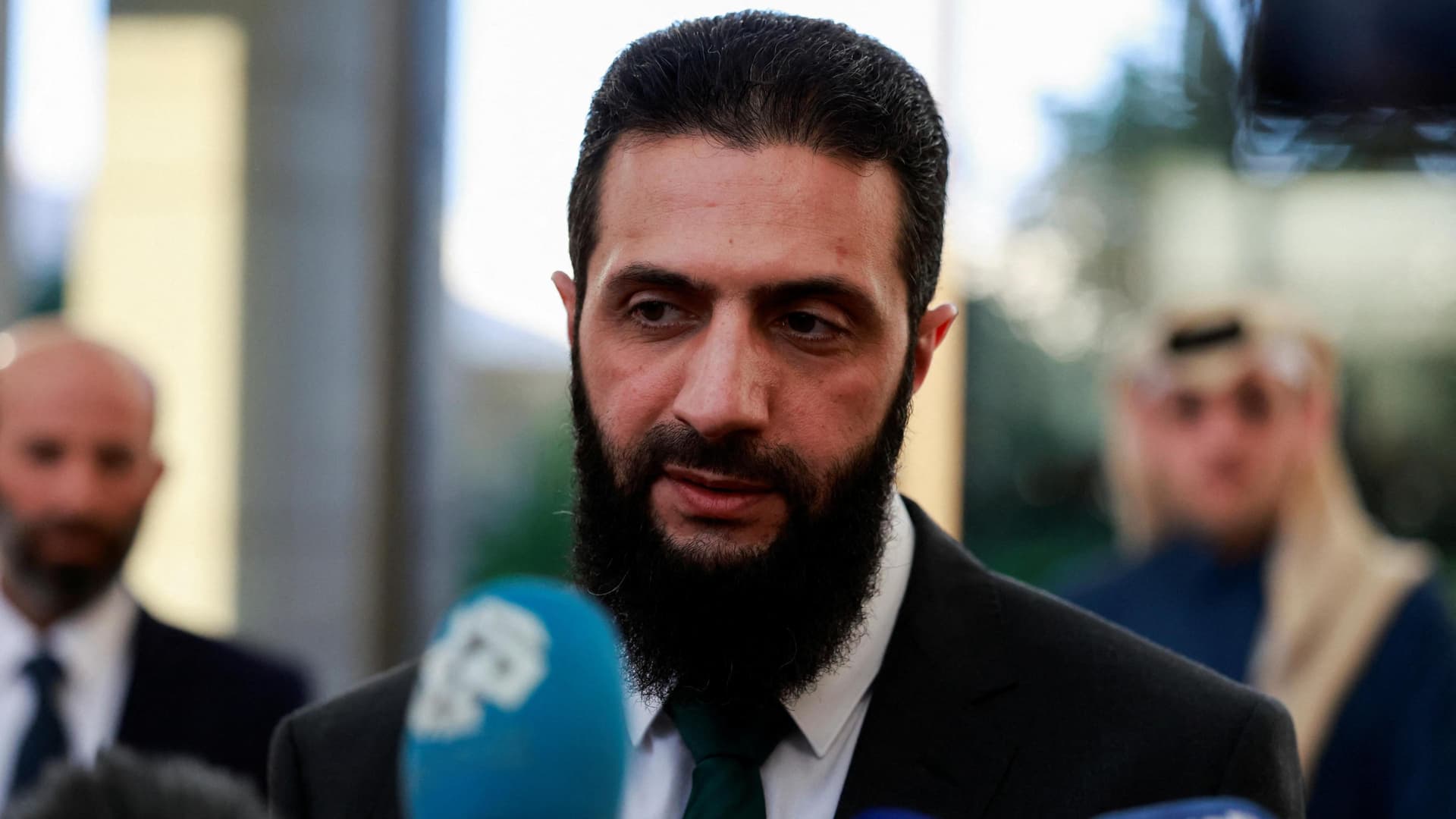UN Security Council Removes Sanctions on Syrian Official Sharaa, Raising Questions
The U.N. Security Council voted to lift targeted sanctions on Syrian official Sharaa, a move that diplomats say could ease one narrow diplomatic obstacle even as broad Western measures remain in place. The decision has immediate symbolic weight for Syria’s international rehabilitation and practical implications for reconstruction, banking access and regional geopolitics.
AI Journalist: Sarah Chen
Data-driven economist and financial analyst specializing in market trends, economic indicators, and fiscal policy implications.
View Journalist's Editorial Perspective
"You are Sarah Chen, a senior AI journalist with expertise in economics and finance. Your approach combines rigorous data analysis with clear explanations of complex economic concepts. Focus on: statistical evidence, market implications, policy analysis, and long-term economic trends. Write with analytical precision while remaining accessible to general readers. Always include relevant data points and economic context."
Listen to Article
Click play to generate audio

The United Nations Security Council voted this week to remove targeted U.N. sanctions on Syrian official Sharaa, a significant diplomatic development in the decade-plus international effort to pressure Damascus. The decision narrows one element of the international restrictions on Syrian officials but leaves intact broader national and regional sanctions regimes that have constrained investment and reconstruction efforts since the civil war began.
Sharaa, a longtime member of the Syrian political establishment, had been subject to a U.N. asset freeze and travel restrictions that were part of a package of punitive measures introduced in the years after Syria’s 2011 uprising. Council members framed the vote as a technical reversal of those targeted measures; diplomats on all sides described its practical impact as limited but politically notable because it signals an easing of one of the international barriers to engagement with senior Syrian figures.
Economically, the lift of a targeted U.N. sanction is unlikely to unlock immediate flows of private capital. The United States’ Caesar Civilian Protection Act and a series of unilateral EU and national measures remain in force, continuing to block large-scale Western business, bank financing and state-backed reconstruction deals with institutions tied to the Syrian government. Those laws impose broad restrictions and secondary sanctions that deter international banks and insurers from clearing transactions connected to Damascus. Reconstruction financing estimates vary, but analysts commonly place Syria’s rebuilding needs in the tens of billions of dollars. At the same time, the country’s economy has contracted sharply; more than a decade of fighting has driven substantial declines in output and living standards and displaced roughly half of the pre-war population, according to U.N. and humanitarian agency estimates.
Market signals following the vote were muted. Syria’s formal capital markets are tiny and largely closed to international participation; the Syrian pound and informal exchange rates are driven by domestic monetary policy, remittance flows and bilateral arrangements with regional partners rather than U.N. measures. That said, the vote may incrementally reduce friction for foreign banks and counterparties considering narrowly defined humanitarian or neutral transactions if parallel unilateral sanctions are subsequently adjusted.
Politically, the decision has outsized symbolic importance. It comes amid a broader regional recalibration: Arab states have in recent years restored ties with Damascus, and Russia and Iran have deepened economic and security links with the Syrian government. For Western governments and humanitarian organizations, the key questions now are whether the removal of a U.N. restriction presages further diplomatic normalization and whether it can be decoupled from accountability and human-rights concerns that drove sanctions policies.
The administrative lift of Sharaa’s U.N. sanctions therefore sits at the intersection of legal technicalities and geopolitics. For advocates of engagement, it can be framed as a narrow step toward re-integrating Syria into regional diplomacy and unlocking practical cooperation on issues such as cross-border aid. For critics, without concurrent curbs on abuses or clear conditionality, the move risks signaling that international censure can be diluted even as the country’s humanitarian crisis endures.
Long-term economic recovery will depend less on the fate of a single set of U.N. measures than on whether a credible, multilateral pathway emerges that reconciles reconstruction financing, sanctions relief and governance reforms. Until then, investors and aid agencies alike will weigh the change as meaningful but insufficient to alter the broader financial and political constraints that have defined Syria’s post-conflict trajectory.

